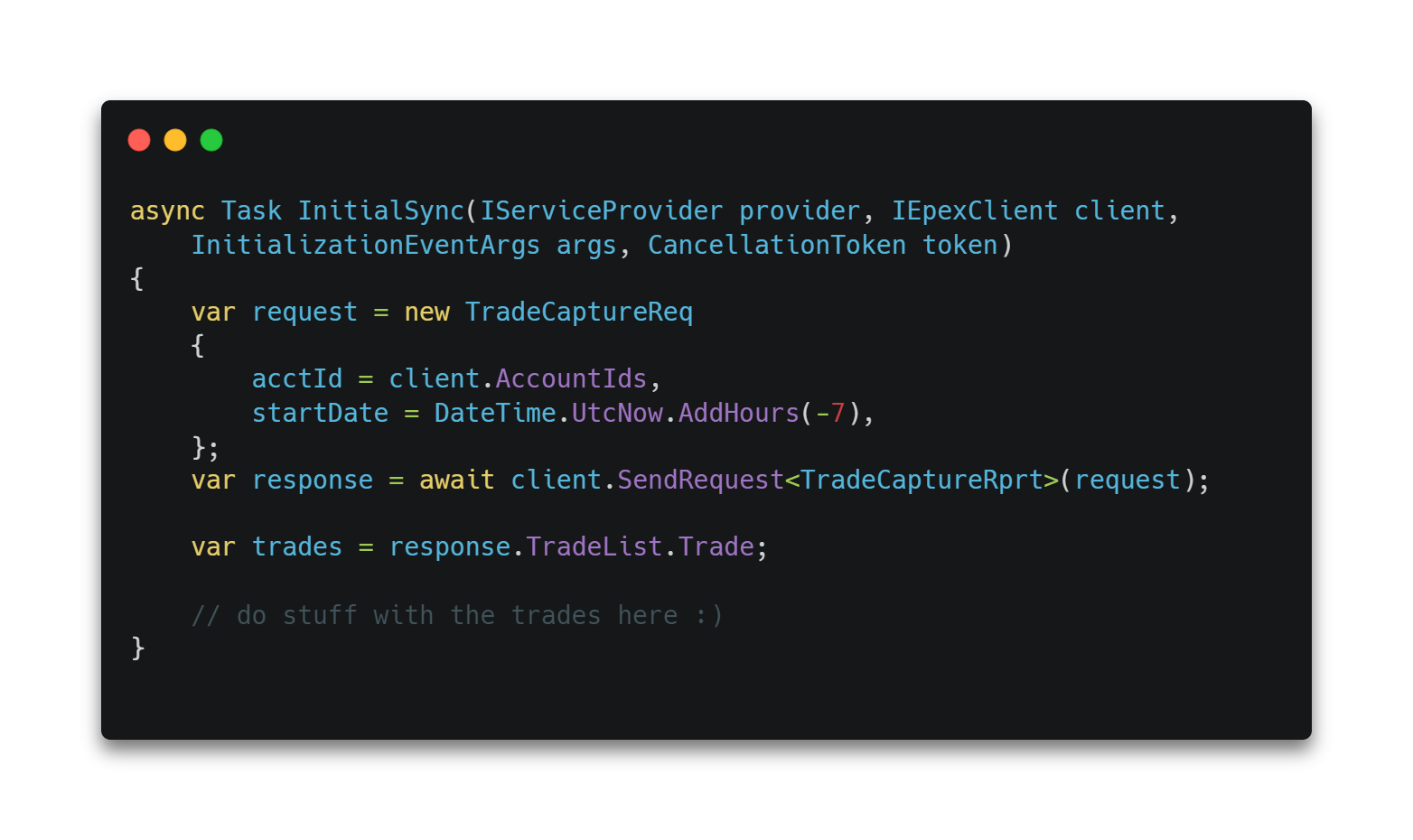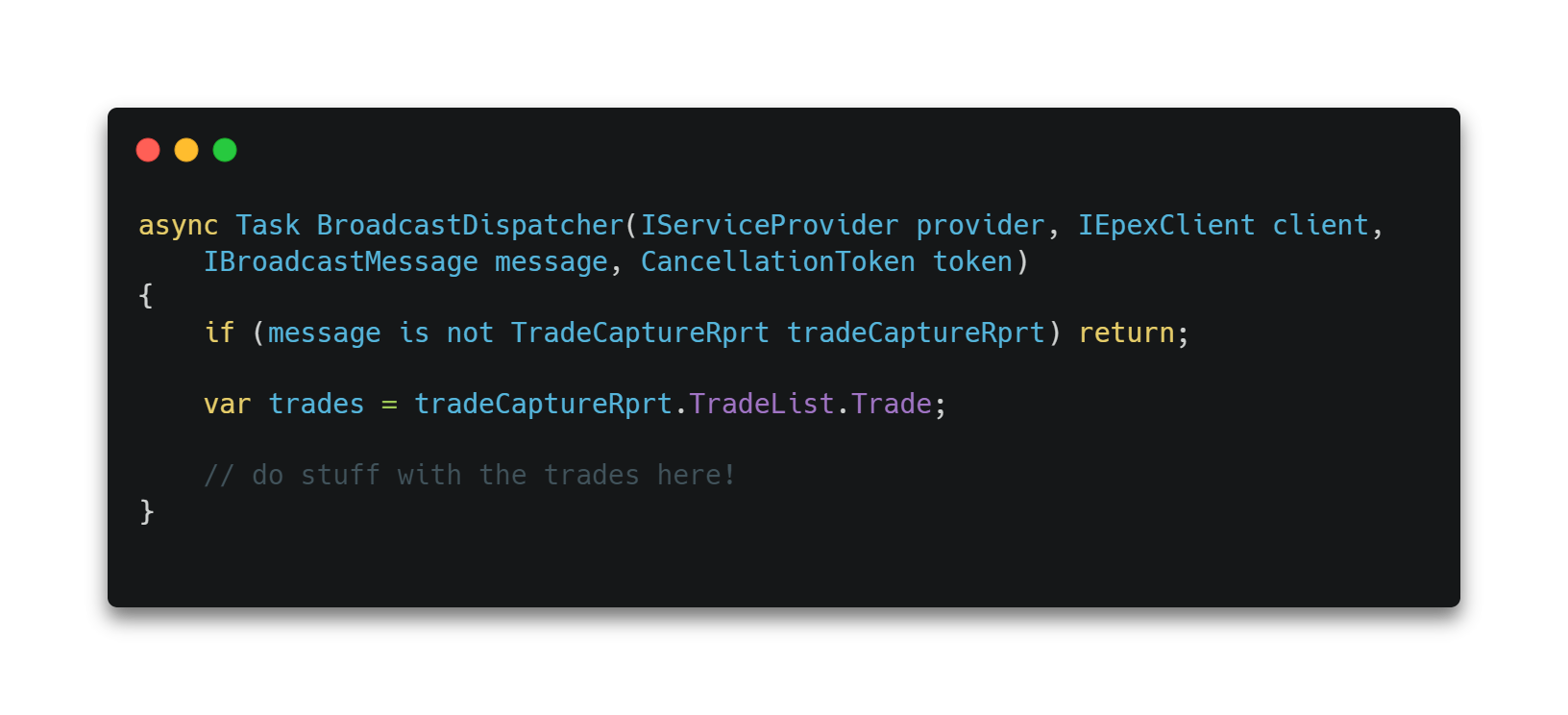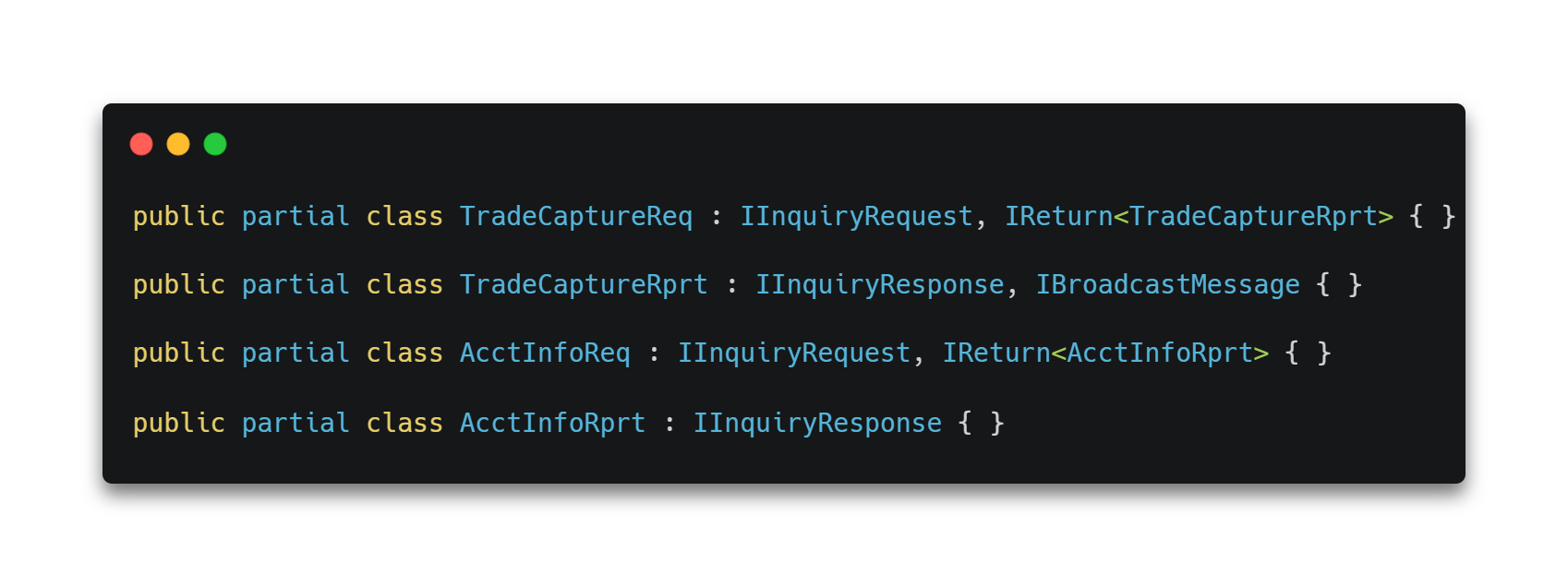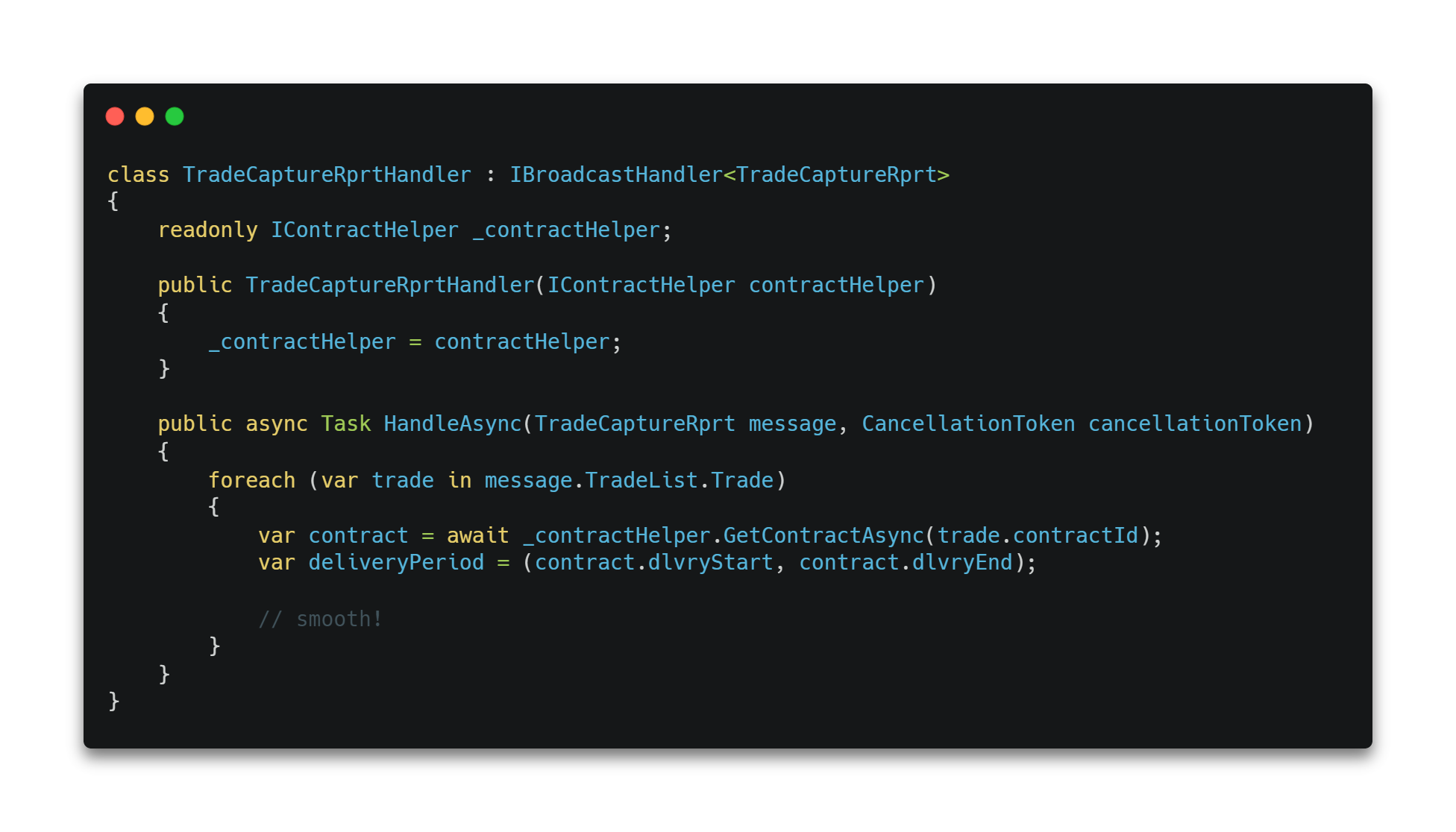Built by Copper Energy Systems
When building Copper Power Platform, the requirement for an M7 integration that was clean, usable, and confidence-inspiring led to the creation of Copper M7.
Because of its reliance on
RabbitMQ/AMQP 0.9.1,
a fairly involved messaging protocol, and the requirement of being able to gracefully handle failover,
integrating with EPEX M7 is notoriously difficult.
Copper M7 hides all the messy details, making it possible for developers to focus on developing their own stuff. 🙂
It comes in the form of a few NuGet packages and is built with state-of-the art
.NET 6 / .NET 7 / .NET 8, integrating seamlessly into
Microsoft's generic host.







